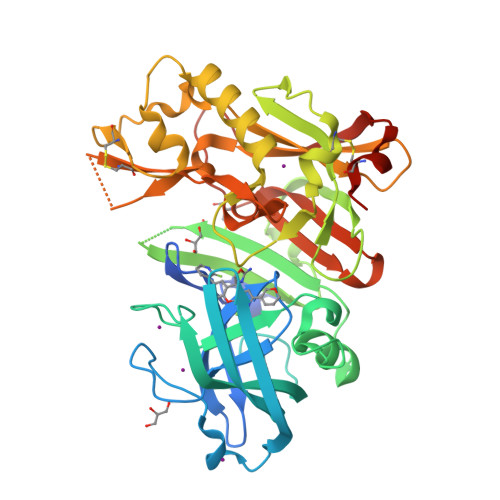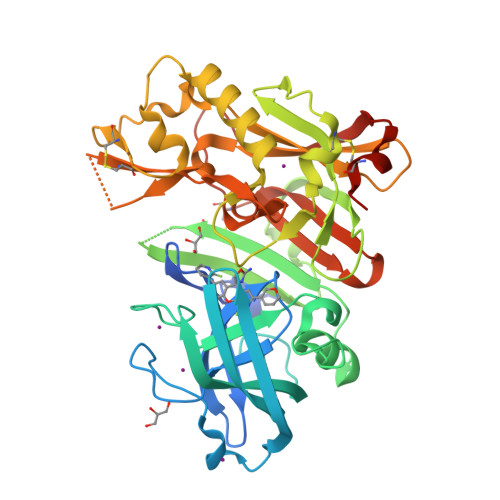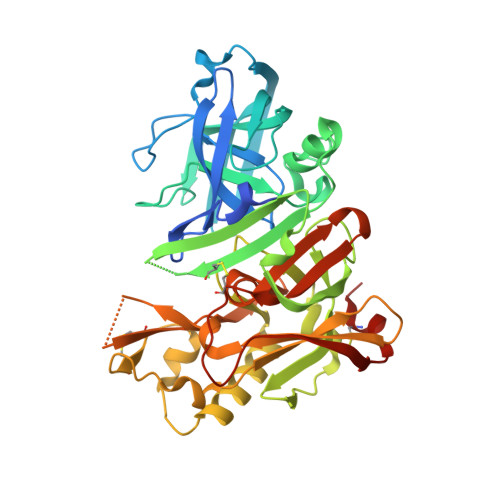An Orally Available BACE1 Inhibitor That Affords Robust CNS A beta Reduction without Cardiovascular Liabilities.
Cheng, Y., Brown, J., Judd, T.C., Lopez, P., Qian, W., Powers, T.S., Chen, J.J., Bartberger, M.D., Chen, K., Dunn, R.T., Epstein, O., Fremeau, R.T., Harried, S., Hickman, D., Hitchcock, S.A., Luo, Y., Minatti, A.E., Patel, V.F., Vargas, H.M., Wahl, R.C., Weiss, M.M., Wen, P.H., White, R.D., Whittington, D.A., Zheng, X.M., Wood, S.(2015) ACS Med Chem Lett 6: 210-215
- PubMed: 25699151
- DOI: https://doi.org/10.1021/ml500458t
- Primary Citation of Related Structures:
4WTU - PubMed Abstract:
BACE1 inhibition to prevent Aβ peptide formation is considered to be a potential route to a disease-modifying treatment for Alzheimer's disease. Previous efforts in our laboratory using a combined structure- and property-based approach have resulted in the identification of aminooxazoline xanthenes as potent BACE1 inhibitors. Herein, we report further optimization leading to the discovery of inhibitor 15 as an orally available and highly efficacious BACE1 inhibitor that robustly reduces CSF and brain Aβ levels in both rats and nonhuman primates. In addition, compound 15 exhibited low activity on the hERG ion channel and was well tolerated in an integrated cardiovascular safety model.
Organizational Affiliation:
Department of Medicinal Chemistry, Department of Molecular Structure, Department of Neuroscience, Department of HTS and Molecular Pharmacology, and Department of Pharmacokinetics and Drug Metabolism, Comparative Biology and Safety Sciences, Amgen Inc. , One Amgen Center Drive, Thousand Oaks, California 91320, United States.





















